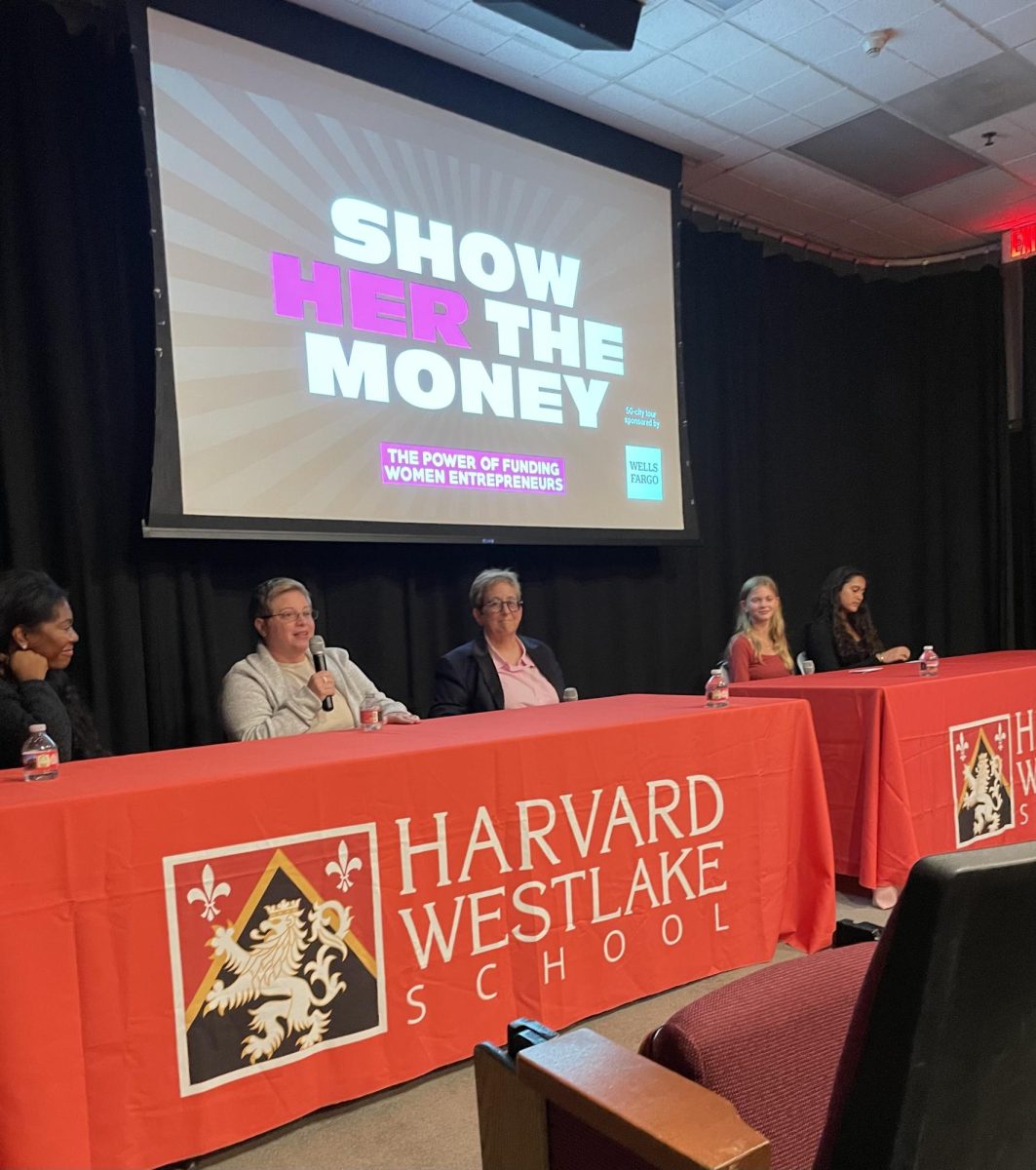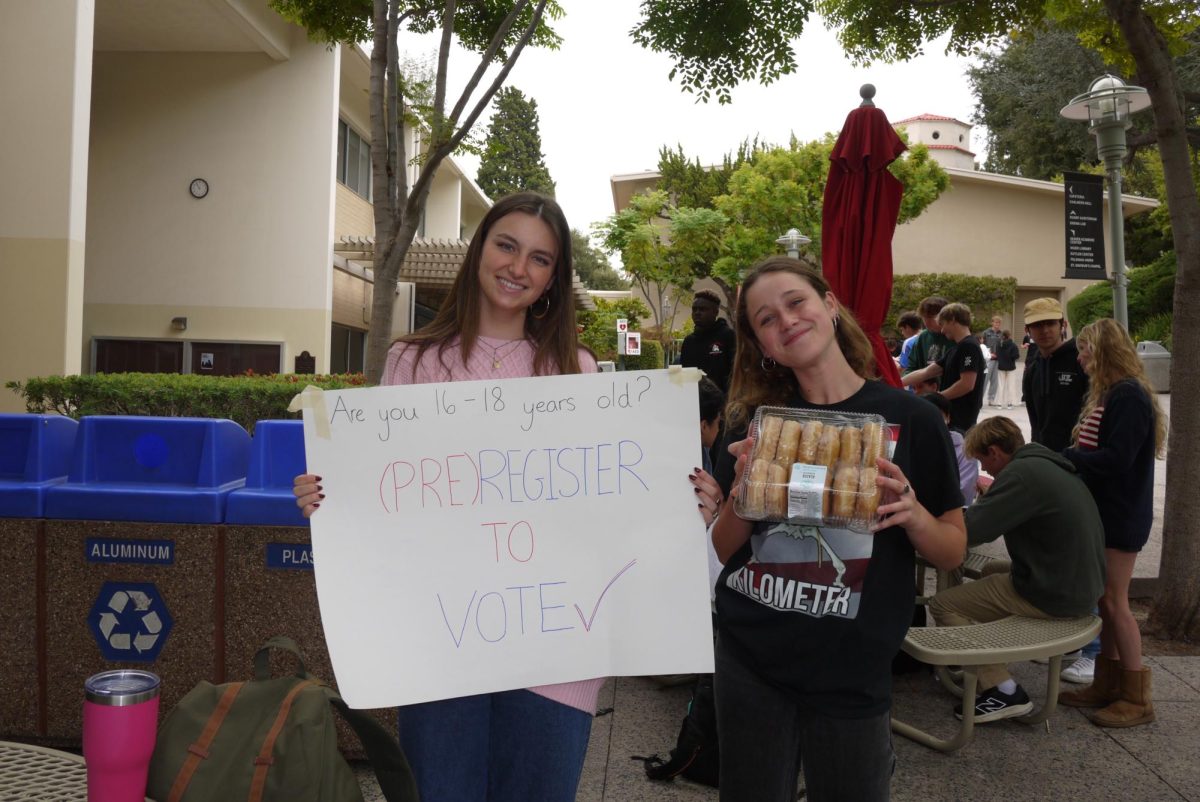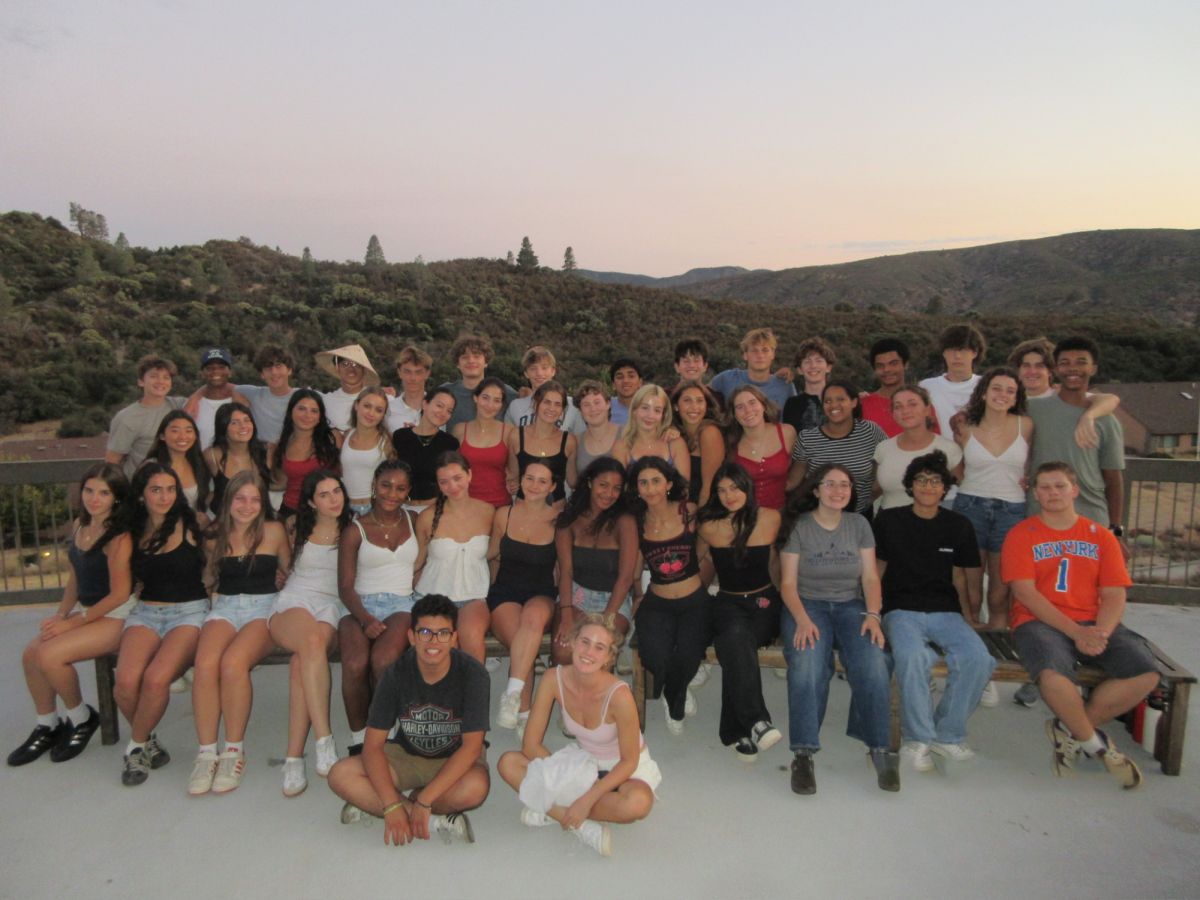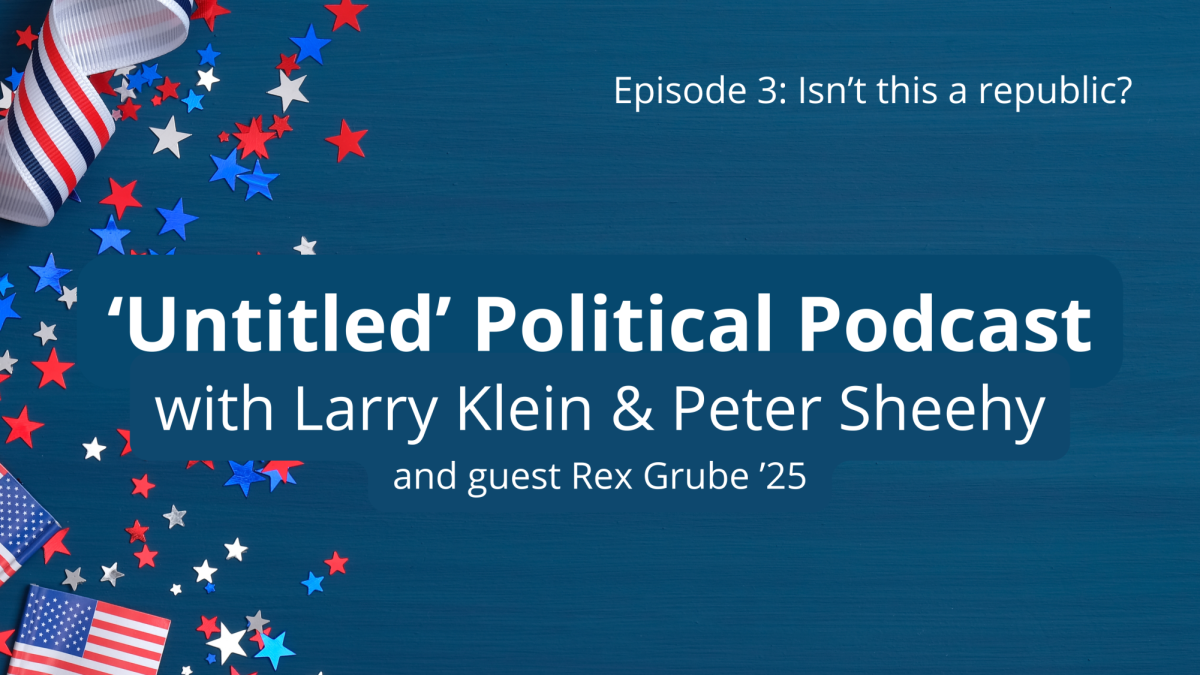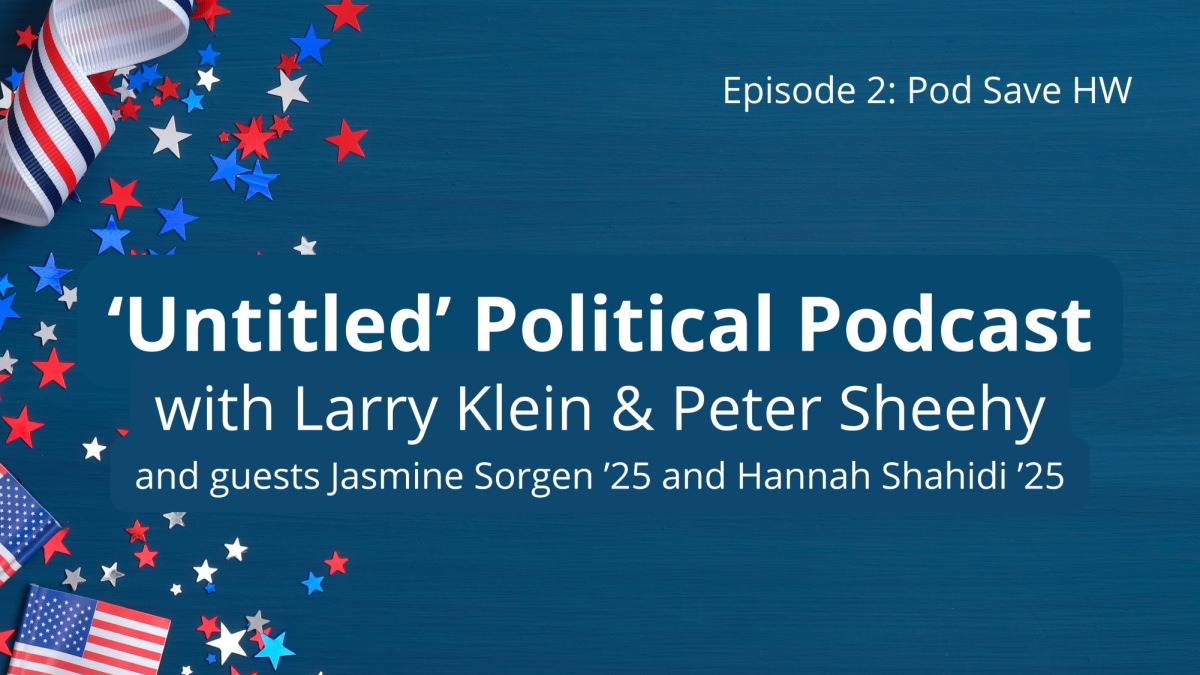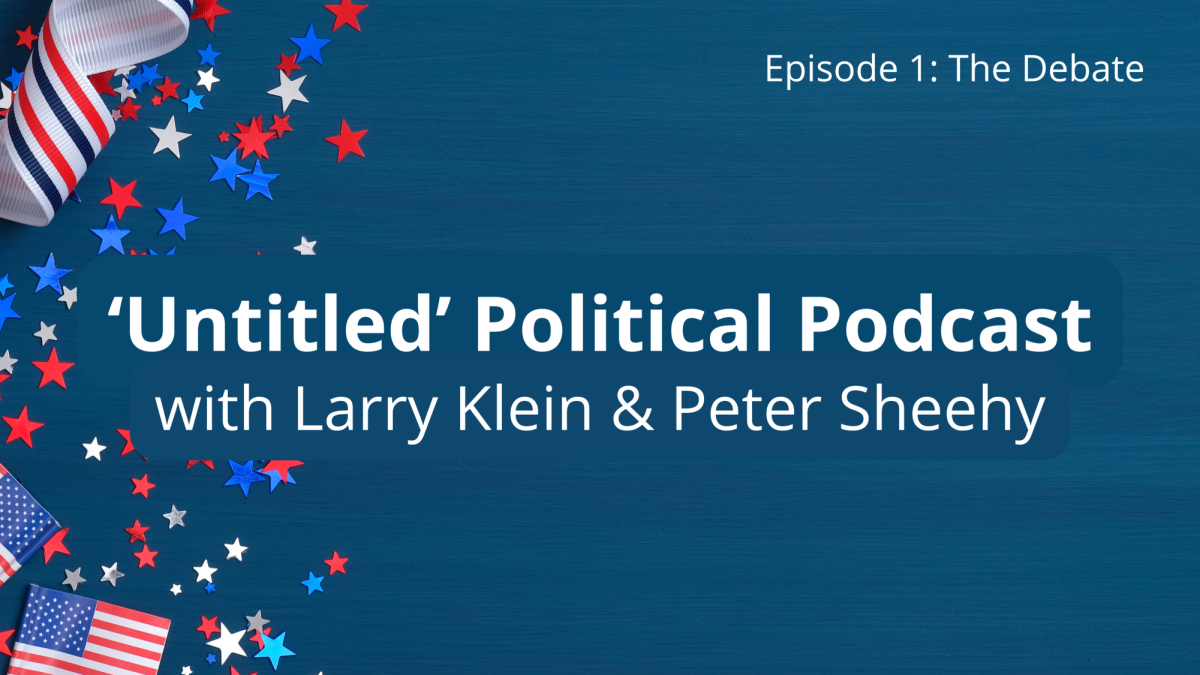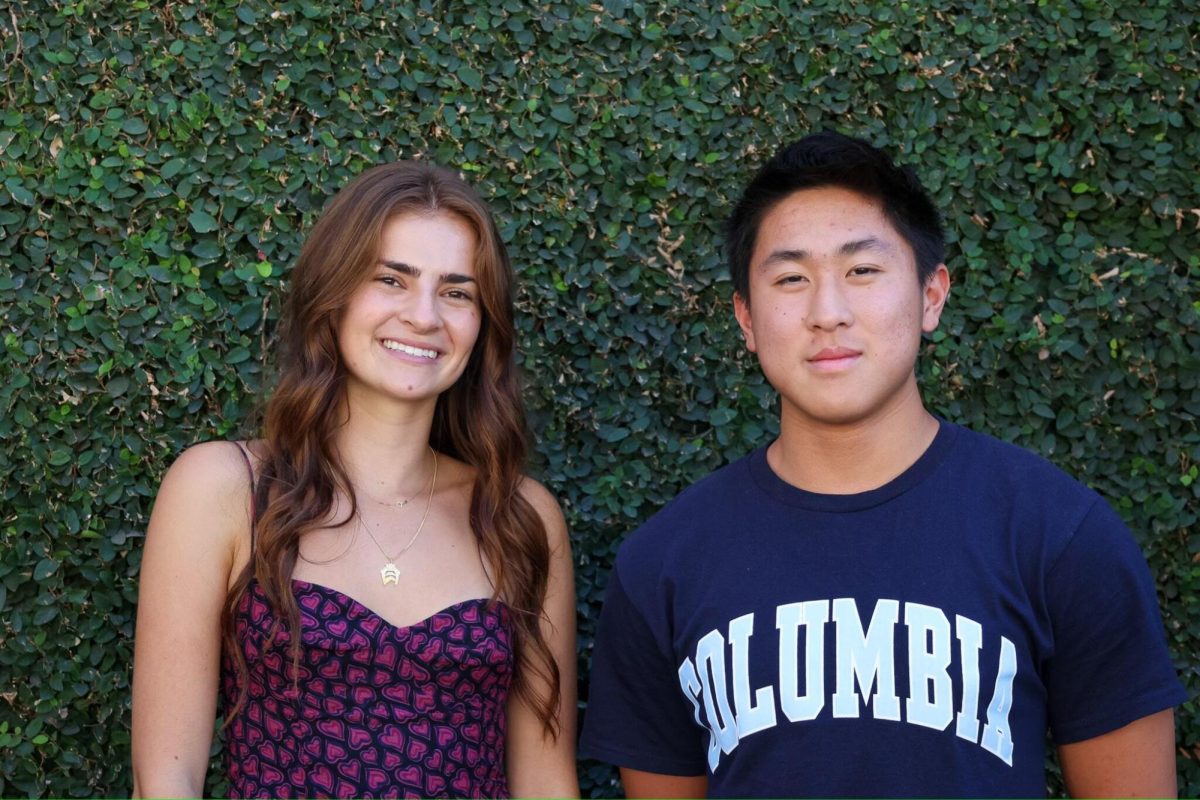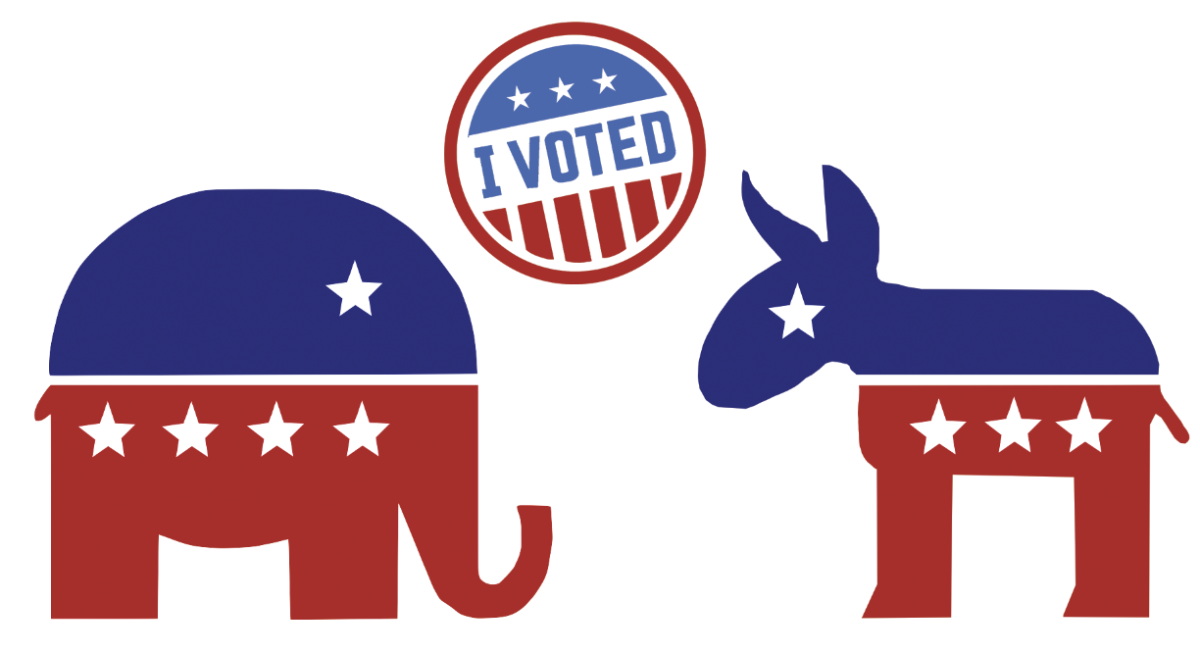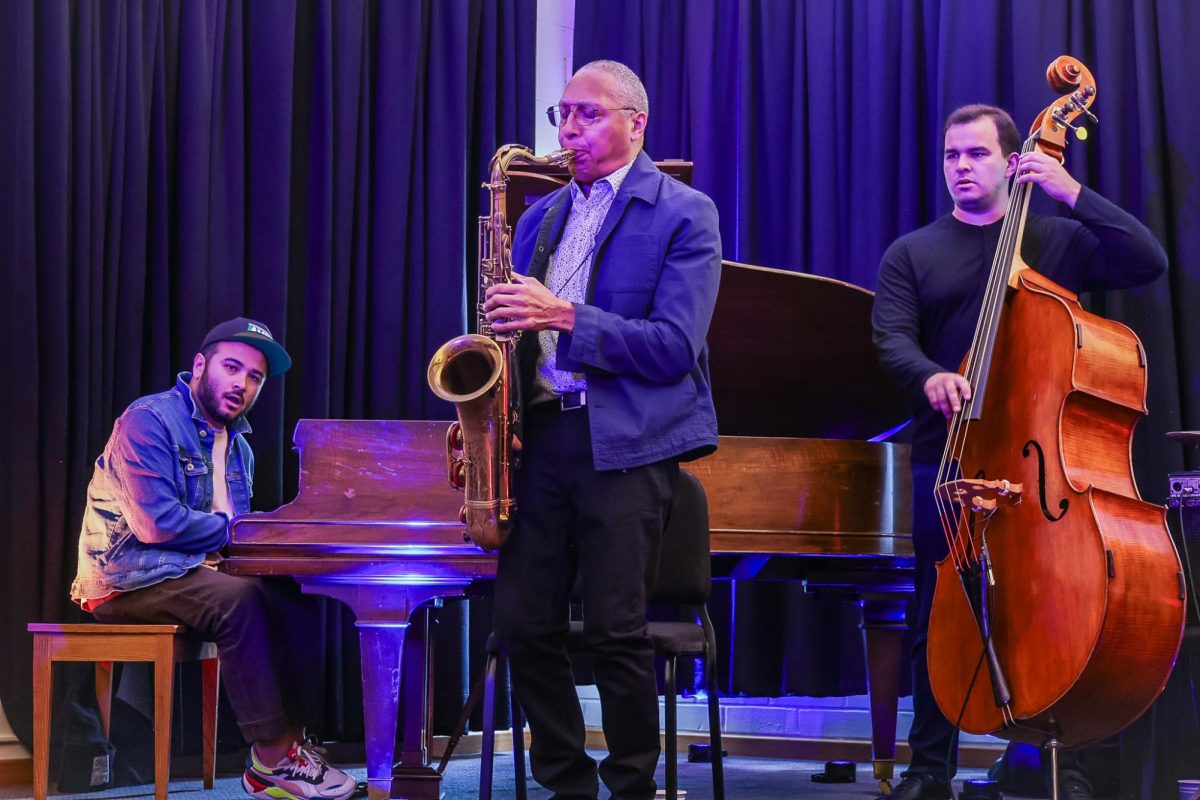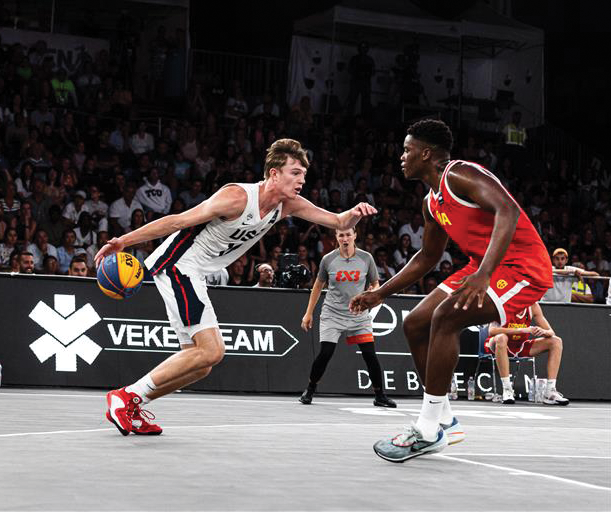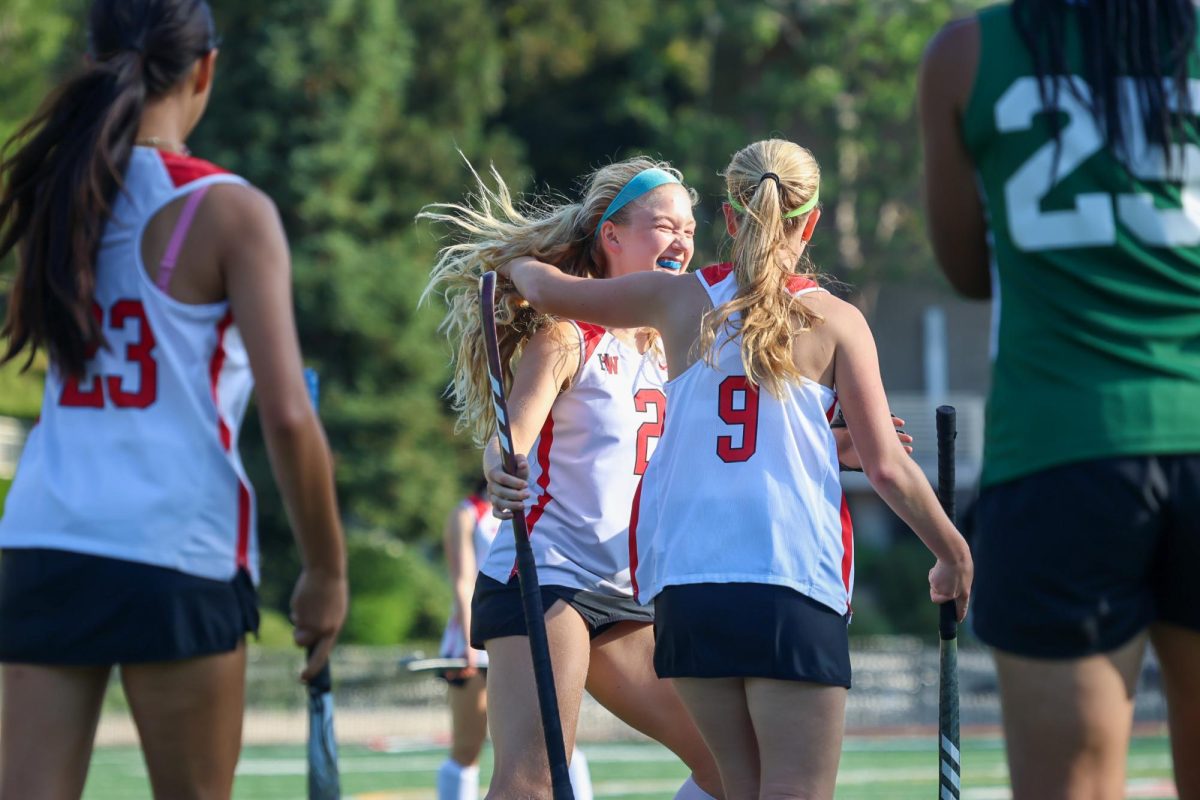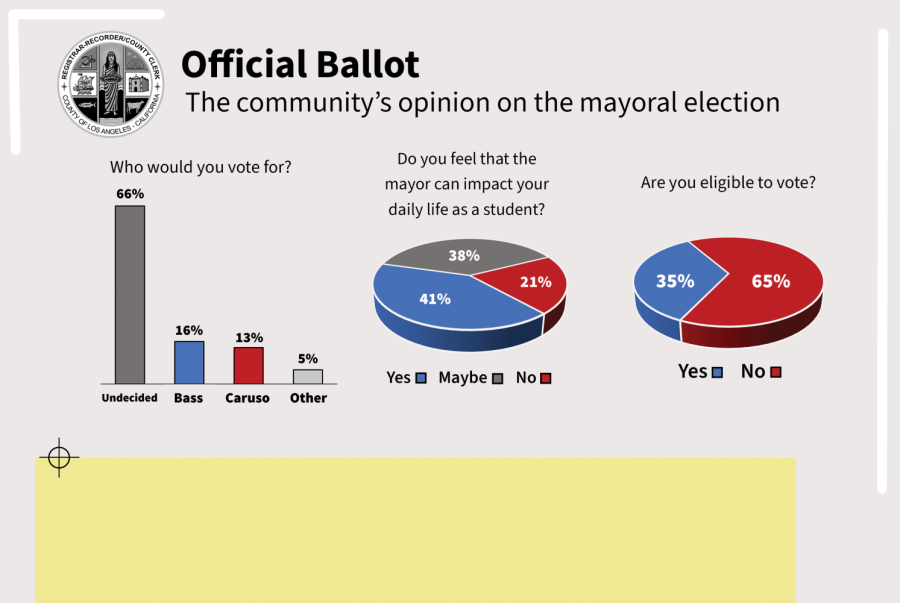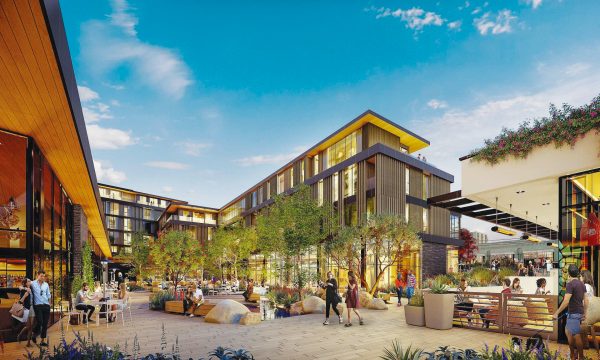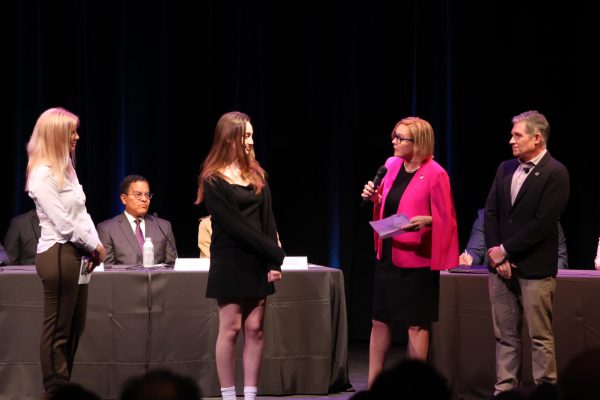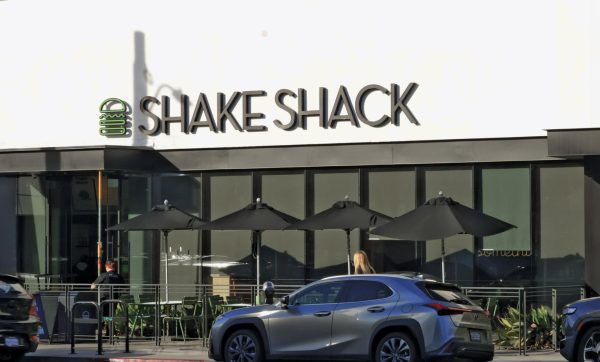Mayoral candidates step up campaign ahead of June 7 primary
Illustration by Alexa Druyanoff and Will Sherwood
An infographic depicts how students feel about the mayoral race.
As the June 7 primary approaches, the campaign for the Los Angeles (LA) mayoral election is narrowing into a two-horse race. In the past few weeks, multiple candidates have dropped out and have announced their support of one of the two frontrunners: Rep. Karen Bass and billionaire real estate developer Rick Caruso.
After the primary, unless one candidate receives more than 50% of the vote, the top two finishers will face each other in a run-off election Nov. 8. An April poll co-sponsored by the Los Angeles Times showed the two front-runners: Caruso had support from 24% of likely voters, and Bass had support from 23%.
Bass has been the congresswoman for California’s 37th congressional district since 2011 and was the first African-American woman in the country to be speaker of a state legislature. More recently, Bass received national attention when it was widely reported that she made the short list of candidates to be President Biden’s vice-presidential pick.
Bass attended an event for teenagers in Santa Monica where high school students and journalists asked questions about her campaign and policy initiatives May 15.
The Homelessness crisis and crime are the two leading campaign issues for frontrunners Bass and Caruso. Bass said she is concerned about the way these two issues are often exploited for political gains.
“I worry we’re at a crossroads in our city and we could take a turn that would be very negative,” Bass said. “People are afraid [and] people are fed up with all of the encampments and increase in crime. The stage is set for us to go in a very conservative, punitive direction. And that’s one of the biggest reasons why I decided to take a big gamble. If this was all about my career and a personal decision, [I would have stayed] in Congress and run for a leadership spot.
Bass said she is driven to make the city a better place by solving the crises Los Angelinos face rather than to move up in the ranks of politics.
“I’ve never been motivated just on what career level, I could get to, I’ve always been motivated by the issues,” Bass said. “When people get frustrated, that’s when they make really bad policy. And unfortunately, in a political campaign, and any political consultant will tell you, a winning strategy is fear and division and to convince everybody that the city is going to hell in a handbasket and that we need a Superman or a savior to come. That’s not the kind of campaign I want to run.”
In January, Caruso changed his party affiliation from Republican to Democrat to prepare for his mayoral race. Since he joined the race, he has spent $24 million of his own money on the campaign, according to CNN.
Manu Markman ’23 said he supports Caruso because he believes he would be the toughest on crime, and as an LA businessman, it is in Caruso’s interest to make progress on these issues.
“I personally like Caruso, because he’s more anti-crime than Bass in his policies,” Markman said. “‘Cleanup LA’ has sort of been his message, both on crime and homelessness. And in fact, I would say he has an even bigger stake because Bass is in Washington. She’s away from LA more than Caruso is, and Caruso is a large business owner. He certainly has a stake in making sure LA stays clean. It’s sort of the idea that recently politicians have become less and less career politicians and more and more opportunistic business owners.”
Bass said what separates her from the rest of the field is the relationships she has fostered as a public servant, and that unlike Caruso, she is a long-time Democrat.
“Well, there is one brand-new Democrat, but I’m not going to go there.” Bass said. “As a lifelong Democrat, I think what makes my candidacy different is my depth of relationships, especially on the federal, state, county and local level. And that’s what you need in order to make government work. I think sometimes in political campaigns, it’s very easy to be superficial and say, ‘I’m going to go in and demand this and everybody’s going to do what I say.’ But that’s not how it works, and I’ve been involved in these issues for a number of years. Granted, I didn’t solve them nor did I bring about world peace, but it doesn’t mean that significant progress wasn’t made.”
Bass said as mayor, she would incorporate multiple levels of government to help solve the homelessness crisis by getting the unhoused off the streets as well as fixing the root causes.
“First of all, we have to prevent more people from becoming homeless,” Bass said. “There are tens of thousands of people that are on the verge of homelessness, and we have to make sure that they stay housed. Number two, we have to get people off the streets as quick as possible. This is the United States of America, we should not have people living on the streets. We have to have a whole government approach. And that means you have to have the federal, state, county and city government involved those levels of government together own hundreds of acres of public land. That’s where I would build right away.”
Bass said she and her team are working on new forms of shelters, although she recognizes temporary housing is not a full solution to the problem.
“I’m working with a group of architects to try to come up with a new model of shelters, there’s a lot of different ideas out there, and some of them are already in place,” Bass said. “But when you house somebody, you do have to address why they were unhoused. Otherwise, it won’t stick, they’ll be housed for a little while, and that will be it Then, you also have to make sure that people can be gainfully employed and move into permanent housing. So when I say temporary housing, I do mean shelters, but we have to come up with a better model of shelter.”
To reduce crime, Bass said she plans to increase the number of Los Angeles Police Department (LAPD) officers as well as expand efforts to work with previously incarcerated people.
“I want to invest tremendous resources in preventing crimes with proven strategies,” Bass said. “So that you stop the crime is happening today and prevent the crimes of the future. One way to prevent crime in the future is to deal with people who are formerly incarcerated, and make sure that they can lead productive lives.”
Bass wants to expand the LAPD and is against defunding the police, according to The Los Angeles Times. Markman said her stance on lowering bail seems to be counterintuitive because it will actually lead to an increase in crime.
“She’s been in favor of lowering bail and increasing the threshold for a felony robbery. And I mean, if you look, there’s a correlation between raising that threshold and an increase in crime. Caruso has been in favor of lowering the felony threshold, at least from what I’ve seen. And he’s actually endorsed the recall of [Los Angeles District Attorney George] Gascón which is something Bass hasn’t done.”
While the LA mayor does not directly oversee public education, Bass said her goals for education are centered on the prevalence of mental health issues in schools.
“The mayor in Los Angeles doesn’t have a direct relationship with the schools, but what I want to do in terms of education, is actually focus on mental health,” Bass said. “My idea around mental health is to seek specific funding for schools. I want to make sure that young people are trained to be peer counselors, because you can never have enough therapists for the school system. But you can absolutely be training young folks, counselors, so you can look for warning signs from young people and make sure that they get the help that they need.”
Bass said the pandemic has delayed learning for many students in the city. She said she wants to support community schools that also teach parents and residents to make up for lost time.
“The biggest thing that the mayor can do is to contribute resources,” Bass said. “The concept of community schools is something that I’m really supportive of. Because you know, one of the things that happened during the pandemic, [Los Angeles Unified School District (LAUSD)] was really good in terms of getting laptops to everybody. But even middle school and high school students were not logging on in a huge percentage, and so I’m concerned about the learning loss,and I think that we need to figure out where the students are now, and what additional resources they need in order to catch up.”
Bass said even though some candidates promise a lot, she is realistic about how much a mayor can really get done.
“I always think it’s important to be straight with people,” Bass said. “And to not act like as a mayor, I’m a wizard, and I get to impact and do everything. Some people want me to do all these different things, and I’m resisting that because the reason I’m running is the crisis that we’re dealing with now. So if I say I’m going to do 400 things, you should be suspicious that I’m gonna get anything done at all.”
Markman said while each candidate promises different visions, they might not translate into concrete policy if they become the mayor.
“I approach campaign promises with a grain of salt because they are rarely fulfilled,” Markman said. “The LA mayor is more of a figurehead. I think the mayor race in LA is more about defining an ideology [for the city] than it is defining an actual policy.”
For students who may feel uncertain about the future of LA, Bass said there are good reasons for optimism.
“I believe very strongly that [young people] have a case for optimism. We’ve talked about problems. The problems are solvable. But it’s a question of getting government to act, but it’s also a question for [people] that are not in government to push government to act. So it’s like in Congress, it can take Congress 10 years, or 10 days to pass legislation. And a lot of what determines that is public involvement and public demand.”
Daniella Goldrich ’23 said it is important for students to be involved in politics and to gain an understanding of each candidate before deciding who to vote for.
“[It is important] to accumulate as much information about every candidate in order to educate yourself so you can vote in a way that is best for you and your community,” Goldrich said. “There are things that I want to address and improve and [getting into politics] is a powerful way to get involved in the democratic process and be able to help other people.”

